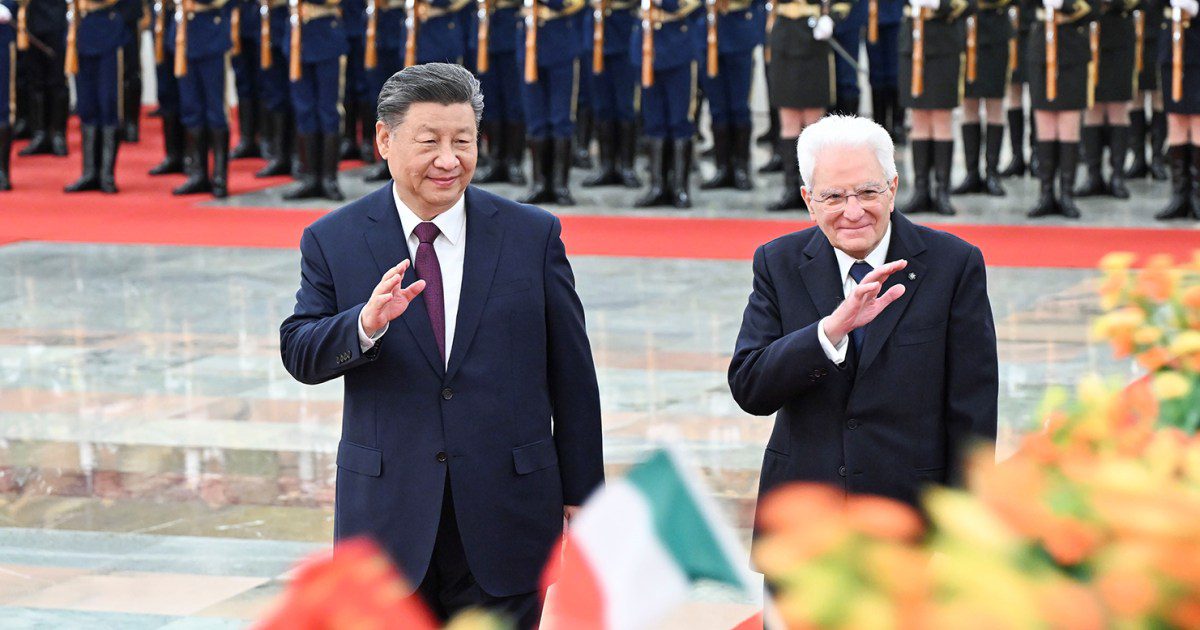
In a matter of just two weeks, President Donald Trump has significantly altered the United States’ traditional position on the global stage.
During a session at the United Nations on Monday, in the very same hall where American diplomats have historically engaged with their Russian peers on behalf of the “free world,” the U.S. representative controversially aligned with Moscow by voting against a resolution that condemned Russia’s invasion of Ukraine.
This vote came on the heels of a week in which President Trump appeared to favor Russia over Ukraine, revealing strategies for a peace agreement that excluded Ukraine from discussions and attributing the conflict to Kyiv’s actions that supposedly instigated the war initiated by Russian President Vladimir Putin three years ago.
Countries across Europe and democracies worldwide are interpreting Trump’s statements and actions not as mere provocations but as a seismic shift.
“The policies of this administration indicate a fundamental change,” commented James Bindenagel, a former high-ranking U.S. diplomat who spent many years in Germany.
Following Trump’s overtures towards Russia, and threats of tariffs against NATO allies, along with talks about acquiring Greenland, European and other democratic leaders are realizing that the U.S. can no longer be viewed as a reliable partner, current and former Western diplomats conveyed to NBC News.
A Strategic Opening for China
With the reliability of American leadership in question, certain European nations and others might pursue alternative alliances and markets, potentially looking towards China, according to Bindenagel.
“The erosion of trust in America creates a vacuum, likely to be filled by collaboration between Moscow, Beijing, Pyongyang, and Tehran,” Bindenagel, who is a professor emeritus at the University of Bonn, noted.
Trump’s distancing from Europe creates a favorable environment for Beijing to deepen its influence on the continent, with Bindenagel stating, “China stands to gain the most in this scenario.”

Should the Trump administration continue to alienate its allies and question long-standing alliances, experts warn of a potential expansion of Chinese and Russian influence across the Asia-Pacific region, Africa, and Eastern Europe. In Asia, shocked officials in U.S. allied nations are trying to understand the implications of the reversal in Washington’s stance, remarked Michael Green, CEO of the United States Studies Centre at the University of Sydney.
“It’s not an exaggeration to say this has deeply unsettled even our closest allies in Asia,” stated Green, who has held posts on the White House National Security Council during George W. Bush’s presidency.
The aggressive dismantling of the U.S. agency responsible for foreign aid by the Trump administration has had significant repercussions globally, according to Green. U.S. embassies are hindered by the turmoil in Washington, and funding for democratic initiatives has diminished, creating an advantage for China.
“Senior officials from Japan, Australia, Indonesia, and Thailand have indicated to me that China is stepping in, offering to replace the U.S. as the preferred partner,” Green noted.
Concerns have arisen among Asian allies regarding the Trump administration’s approach to Ukraine, leading to fears that Washington may hesitate to assist Taiwan if China undertakes aggressive actions to control the island.
Before his meeting with President Trump in Washington on Monday, French President Emmanuel Macron remarked: “How can you be credible against China if you are perceived as weak concerning Putin?”
Defense Secretary Pete Hegseth suggested that if the U.S. were to reduce military support for Ukraine, it could refocus its resources on the Asia-Pacific region.
The image America has sought to portray globally—inspiring democratic governance and balancing against authoritarianism—appears to have undergone a radical transformation. Singapore’s Defense Minister, Ng Eng Hen, recently stated that the U.S., once viewed as a bastion of “moral legitimacy,” now resembles “a landlord seeking rent.”

Shifting Dynamics Among Allies
Supporters of the Trump administration assert that the president is simply urging allies to shoulder a greater share of their defense expenditures, recalibrating trade agreements and working towards a resolution in Ukraine.
“President Trump’s America First approach to diplomacy emphasizes prioritizing U.S. interests,” stated Brian Hughes, spokesperson for the White House National Security Council.
“This administration will continue to collaborate with our allies to enhance burden-sharing for defense expenses, address trade imbalances, and ensure that global adversaries do not take advantage of the U.S., as they did during the Biden administration,” Hughes elaborated.
Nonetheless, Europeans are now faced with the stark reality of preparing for a future that may not include American support.
Friedrich Merz, the likely next chancellor of Germany after the upcoming parliamentary elections, expressed uncertainty about NATO’s future. “In light of Donald Trump’s remarks last week, it’s evident that the U.S. is largely indifferent to Europe’s fate,” Merz, leader of the center-right CDU/CSU alliance, remarked on German television.
Currently, NATO and European Union members lack the military capability, economic cohesion, and political resolve necessary to ensure peace in Ukraine or fill the leadership void left by the United States, former officials have noted.
“Russia is not an omnipotent adversary with an economy on par with Italy’s,” he said. “It is simply far more determined than we are, which amplifies its limited potential remarkably.”
Nile Gardiner, a researcher at the Heritage Foundation, which supports Trump’s agenda, argued that despite tensions with European powers, Trump’s policies may ultimately strengthen NATO and potentially resolve a war that threatens Europe’s stability.

In response to Trump’s demands for NATO allies to take on more defense responsibilities, European countries, including the United Kingdom, have recently declared increases in their defense budgets.
“We are witnessing the Trump effect across Europe, and I believe that Trump aims to leave NATO significantly stronger than when he took office,” Gardiner stated.
However, a peace agreement perceived as inadequate in providing security guarantees for Ukraine against future Russian hostilities could embolden Putin and create even greater risks for Europe, suggested Timothy Sayle, an author and professor of history at the University of Toronto.
“What may seem like peace in the short term could actually set the stage for a broader conflict in the future,” Sayle noted, warning that if Russia maintains its territorial gains in Ukraine, a peace treaty might enable Moscow to execute further aggressions against neighboring European nations, including the Baltic states.
During a speech at the recent U.N. session on Ukraine, Poland’s Foreign Minister Radosław Sikorski cautioned that seeking to end the conflict “at any cost” by yielding to Russia would be a grave error.
Such actions would likely invite further hostility, he added. “If Ukraine is forsaken today, who will be next?”









